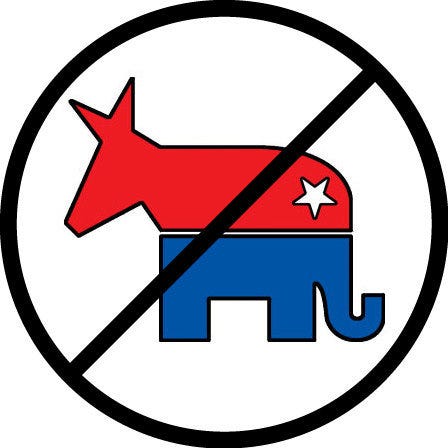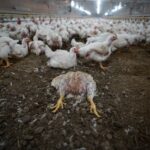The intersection of political ideology and animal rights is often a domain that invites elaborate discourse. Within this sphere, Libertarianism occupies a distinct position, creating a curious juxtaposition of individual liberty, minimal governmental interference, and ethical considerations related to animal welfare. As we delve into this topic, it becomes paramount to unravel the complexities surrounding Libertarians and their potential stance on animal rights.
At its core, Libertarianism advocates for personal freedom and the principle that individuals should be free to make choices regarding their lives and bodies, as long as these choices do not infringe upon the rights of others. This foundational philosophy extends to economic freedoms, legal rights, and, arguably, ethical obligations towards animals. Libertarians often espouse a limited governmental role that might suggest a reluctance to endorse regulatory measures designed to curtail animal cruelty. However, this interpretation raises essential questions about the nature of rights and ethical treatment, especially when it pertains to non-human beings.
The first critical area of analysis involves the definition of ‘rights’ itself. Traditional Libertarian thought is predicated on the idea of self-ownership, which extends to human beings. Yet, when considering animals, the paradigm shifts. Animals, not being rational actors in the human sense, complicate the assertion that all living beings have rights akin to human rights. It is here that one must examine whether Libertarians can or should extend their ethical considerations beyond human confines. The treatment of animals in industries such as agriculture, entertainment, and research frequently elicits the question: Should animals be granted rights, and if so, to what extent?
On one hand, Libertarians might argue that animals do not possess rights in the same way that humans do, primarily due to an aversion to collectivist thinking and a belief in individual agency. From this viewpoint, the consequences of animal exploitation are often framed as issues of personal responsibility rather than systemic oppression. Yet, this perspective can seem paradoxical. If one argues for minimal governmental intervention, but simultaneously allows unchecked corporate practices that lead to rampant animal suffering, does this not create a moral inconsistency?
In examining the principles of non-aggression and voluntary exchange, we find additional fodder for discussion. Libertarian philosophy asserts that initiation of force, or coercion, is unjustifiable. If we apply this tenet to animal rights, one could argue that the violent exploitation of animals constitutes an aggression that threatens their ability to thrive and exist free from harm. Herein lies a crucial opportunity for Libertarians to embrace an ecological and ethical stand that encompasses animal welfare.
A distinct proposition emerges when considering how the free market might proactively address animal rights issues. Libertarians often advocate for entrepreneurial solutions to societal problems instead of reliance on government mandates. In principle, if consumer demand shifts towards humane and ethically sourced animal products, businesses may respond positively, spurred on by profit motives. This transition could represent a voluntary, market-driven approach to ensuring better treatment of animals without invoking the heavy hand of government regulation. However, this scenario presumes an enlightened consumer base, equipped with the information necessary to drive this change.
The Libertarian perspective can also embrace the burgeoning field of animal ethics, which underscores the intrinsic value of non-human beings. Philosophers such as Peter Singer have argued for a utilitarian approach, addressing the need for minimized suffering among sentient creatures. Aligning these philosophical notions with Libertarian thought offers a robust framework for advocating animal rights without contravening core principles. Here, it becomes imperative to reconcile ethical obligations and political ideologies for a mutually beneficial outcome.
Emerging from this concoction of ethics and ideology is the potential for Libertarians to champion a new narrative surrounding animal rights—one that is not couched in the paradigm of governmental control but rather in the pursuit of individual liberty as it extends to all sentient beings. This shift in perspective could fundamentally redefine the perception of animal rights within the political landscape, encouraging Libertarians to think critically about the implications of their ideology on creatures entrusted in our care.
Moreover, as the contemporary sociopolitical climate recognizes growing concern for issues surrounding animal welfare, it would serve Libertarians well to embrace a form of animal rights advocacy. This alignment could significantly benefit their political discourse, resonating with a demographic increasingly intolerant of cruelty and exploitation. By engaging actively with the nuances of animal rights, Libertarians could position themselves as forward-thinking advocates whose approach prioritizes ethical considerations alongside traditional values of individual liberty.
In conclusion, while the initial premise suggests a challenge for Libertarians regarding animal rights, a nuanced exploration reveals potential pathways towards a more comprehensive understanding of welfare that transcends the individualistic framework. By adopting an ethos that reconciles market solutions with ethical obligations to animals, Libertarians can inject vitality into their ideology, forging a robust position on animal rights that echoes their fundamental principles while advancing justice for our non-human counterparts. To do so is not merely a political necessity; it might pave the way for a more compassionate society that resonates with an increasingly ethically conscious populace.








